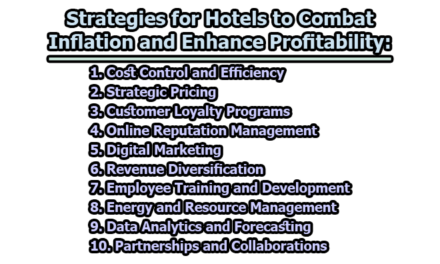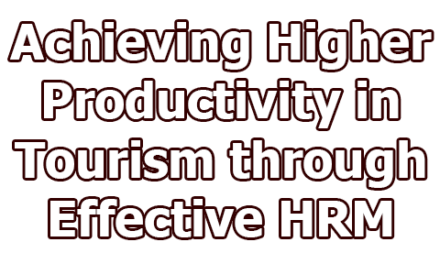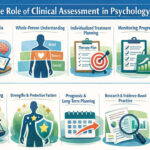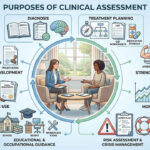The Need for New Knowledge and Skills in the Hotel Industry:
The hotel industry is a dynamic and ever-evolving sector that continually demands new knowledge and skills from its professionals. In recent years, several factors have contributed to this need for constant adaptation, making it crucial for individuals in the industry to stay up-to-date with the latest trends and practices. Let’s explore the need for new knowledge and skills in the hotel industry:
1. Changing Consumer Expectations: Guests’ expectations have evolved dramatically, driven by technology, globalization, and increased travel experiences. Today’s guests demand personalized experiences, seamless technology integration, sustainability practices, and a high level of service. Hotel professionals need to understand and adapt to these changing expectations.
- Personalization: Modern hotel guests expect a personalized experience. They want hotels to remember their preferences, such as room temperature, pillow types, and food allergies. Professionals need to employ guest data and technology to tailor services to individual needs.
- Seamless Technology Integration: Today’s guests desire a seamless, technology-driven experience. This includes mobile check-in and check-out, keyless room entry, and in-room tablets for controlling lights, temperature, and entertainment. Hotel staff must be adept at implementing and troubleshooting these technologies.
- Sustainability Practices: Guests are increasingly eco-conscious and prefer to stay at environmentally responsible hotels. Professionals need to understand green initiatives, like energy-efficient lighting, water conservation, and waste reduction, to appeal to this growing market.
- High Level of Service: Exceptional customer service remains a hallmark of the hotel industry. Staff must be trained in communication, conflict resolution, and anticipating guest needs to deliver top-notch service.
- Data Analysis: Understanding and leveraging data is critical for improving guest experiences. Professionals should be well-versed in data analytics to track and interpret guest preferences and feedback for continuous improvement.
2. Digital Transformation: The hotel industry has been greatly influenced by digital technology. This includes online booking platforms, mobile check-in, smart room controls, and artificial intelligence-powered chatbots. Professionals need to be tech-savvy to effectively operate and manage these systems and utilize data analytics for better decision-making.
- Online Booking Platforms: Hotels rely heavily on online booking systems and third-party travel websites. Professionals need to manage these platforms effectively, optimizing pricing, room availability, and marketing strategies.
- Mobile Technology: Mobile apps and websites are crucial for guest engagement. Hotel professionals must ensure that their digital presence is user-friendly, provides real-time information, and facilitates mobile check-in and other services.
- Artificial Intelligence (AI): Chatbots, AI-powered concierges, and personalized recommendations are becoming prevalent. Staff need to understand and manage these technologies for better guest interactions.
- Data Security: With the increase in digital transactions and data collection, hotel professionals must be vigilant about cybersecurity to protect guests’ personal information.
3. Sustainability: Environmental awareness and eco-friendliness have become vital in the industry. Hotels are increasingly adopting sustainable practices to reduce their carbon footprint. Professionals should be knowledgeable about sustainable operations, waste reduction, energy conservation, and green certifications.
- Sustainable Sourcing: Knowing how to source eco-friendly products and food locally is essential. Professionals should be aware of sustainable suppliers and practices that reduce the carbon footprint.
- Waste Reduction: Reducing waste through recycling programs and minimizing single-use plastics is a vital aspect of sustainability. Staff should be knowledgeable about waste management strategies.
- Energy Conservation: Implementing energy-efficient lighting, heating, and cooling systems is not only environmentally responsible but also cost-effective. Hotel professionals should be well-versed in these technologies.
- Green Certifications: Hotels can earn certifications like LEED (Leadership in Energy and Environmental Design) or Green Key. Professionals should understand the criteria and requirements for these certifications.
4. Cultural Sensitivity: As the world becomes more interconnected, hotel employees must be culturally sensitive and understand the diverse needs and expectations of international guests. This includes knowledge of customs, languages, and dietary requirements.
- Diverse Guest Profiles: International travel is on the rise, and hotels host guests from diverse backgrounds. Professionals must be culturally sensitive, understanding and respecting various customs and traditions.
- Language Skills: Basic proficiency in common languages spoken by guests can enhance the guest experience. Learning key phrases and understanding cultural nuances related to language is valuable.
- Cultural Cuisine: Offering diverse dining options that cater to international tastes is a significant aspect of cultural sensitivity.
5. Security and Safety: In the wake of global security concerns, hotel professionals must be well-versed in security and safety protocols. This includes emergency response training, understanding potential threats, and cybersecurity to protect guest information.
- Emergency Response Training: Hotel staff should receive training in emergency response protocols, such as fire safety, medical emergencies, and evacuation procedures.
- Threat Awareness: Understanding potential threats like terrorism, theft, and cyberattacks is crucial. Professionals should be prepared to recognize and report suspicious activities.
- Cybersecurity: With the digitalization of hotel operations, protecting guest data from cyber threats is paramount. Knowledge of data encryption, secure payment systems, and regular security audits is essential.
6. Food and Beverage Trends: The food and beverage aspect of the hotel industry is evolving with new dietary trends, preferences for locally sourced ingredients, and the rise of plant-based cuisine. Hotel professionals must stay informed about these trends to cater to diverse guest preferences.
- Dietary Preferences: Guests today have a wide range of dietary preferences and restrictions, including vegetarian, vegan, gluten-free, and more. Hotel professionals must be knowledgeable about these dietary choices and be able to offer suitable menu options.
- Locally Sourced Ingredients: The “farm-to-table” trend has gained popularity. Hotels should source ingredients locally when possible to support local communities and offer fresher, more sustainable food.
- Sustainable Practices: Reducing food waste, using sustainable packaging, and implementing energy-efficient kitchen equipment are essential for maintaining environmentally responsible food and beverage operations.
- Food Safety: Staying updated on food safety regulations, such as HACCP (Hazard Analysis and Critical Control Points), is crucial to ensure the health and well-being of guests.
7. Revenue Management: Maximizing revenue while maintaining occupancy levels is a critical skill in the hotel industry. Professionals need to understand pricing strategies, demand forecasting, and distribution channels to optimize revenue.
- Pricing Strategies: Professionals need to understand dynamic pricing models that adjust room rates based on demand, occupancy levels, and market conditions.
- Demand Forecasting: Accurate forecasting is essential to optimize room availability and pricing. Knowledge of data analytics and market trends is crucial.
- Distribution Channels: Effective use of online travel agencies (OTAs), direct bookings, and channel management systems is critical to maximize revenue while minimizing distribution costs.
8. Human Resource Management: The hotel industry relies heavily on its workforce. Professionals need to stay updated on human resource management trends, such as employee engagement, diversity and inclusion, and talent development to retain and attract skilled employees.
- Employee Engagement: Ensuring that staff members are motivated and engaged is essential for maintaining high levels of service. Training in employee engagement strategies, recognition programs, and team building is important.
- Diversity and Inclusion: The hotel industry should embrace diversity and inclusion. Professionals must understand the importance of diversity and implement policies to create an inclusive work environment.
- Talent Development: Training and development programs are crucial for retaining skilled employees. Hotel professionals need to create opportunities for staff to acquire new skills and advance in their careers.
9. Health and Hygiene Standards: The COVID-19 pandemic has highlighted the importance of health and hygiene in hotels. Professionals need to stay informed about the latest health protocols and sanitation practices to ensure guest safety.
- COVID-19 Protocols: The pandemic has changed the way hotels operate. Understanding and implementing health and safety protocols, including enhanced cleaning procedures, social distancing, and contactless services, is essential.
- Sanitation Best Practices: Knowledge of proper sanitation techniques and the use of certified cleaning products is crucial for maintaining guest safety.
- Certifications and Compliance: Staying informed about local health regulations and following industry guidelines, such as those from the World Health Organization (WHO) and the Centers for Disease Control and Prevention (CDC), is important.
10. Regulatory Changes: Local, national, and international regulations in the hotel industry can change frequently. Professionals must be aware of these changes and ensure compliance with laws and standards related to taxation, labor, zoning, and safety.
- Taxation: Hotel taxes and regulations vary by location and are subject to change. Professionals need to be aware of these taxes, comply with tax laws, and adjust pricing and accounting practices accordingly.
- Labor Laws: Labor regulations related to wages, working hours, and employee benefits can change over time. Staying informed about labor laws is crucial for HR and management.
- Zoning and Building Codes: Ensuring that the hotel property complies with zoning and building codes is essential to avoid legal issues and maintain a safe environment for guests.
- Safety Standards: Staying updated on safety standards for elevators, fire alarms, and other critical systems is vital for the well-being of guests and employees.
11. Marketing and Branding: Effective marketing and branding have become more critical than ever in a competitive market. Understanding digital marketing, social media, and reputation management is essential for hotel professionals.
- Digital Marketing: Hotel professionals need to be well-versed in digital marketing strategies, including search engine optimization (SEO), pay-per-click advertising (PPC), and social media marketing. They should understand how to utilize online channels effectively to reach a global audience.
- Social Media Engagement: Social media platforms are integral to brand visibility and engagement. Hotel staff should be capable of managing social media accounts, creating engaging content, and responding to customer inquiries.
- Online Reputation Management: Guest reviews on platforms like TripAdvisor and Yelp significantly impact a hotel’s reputation. Professionals should monitor and respond to reviews, both positive and negative, and implement strategies to improve the hotel’s online image.
- Brand Consistency: Maintaining a consistent brand identity, from the website to the decor, is vital. Professionals should ensure that the hotel’s brand message aligns with the guest experience.
- Competitive Analysis: Keeping an eye on the competition is essential. Hotel professionals should be skilled in market research and analysis to identify trends and stay ahead of competitors.
In conclusion, the hotel industry’s constant evolution and the changing landscape of guest expectations, technology, sustainability, and security make it imperative for professionals to acquire new knowledge and skills. Ongoing training and development, staying informed about industry trends, and a commitment to adaptability are key to success in this dynamic field. Those who can embrace these changes and continuously update their skill sets will thrive in the evolving world of hospitality.

Library Lecturer at Nurul Amin Degree College










